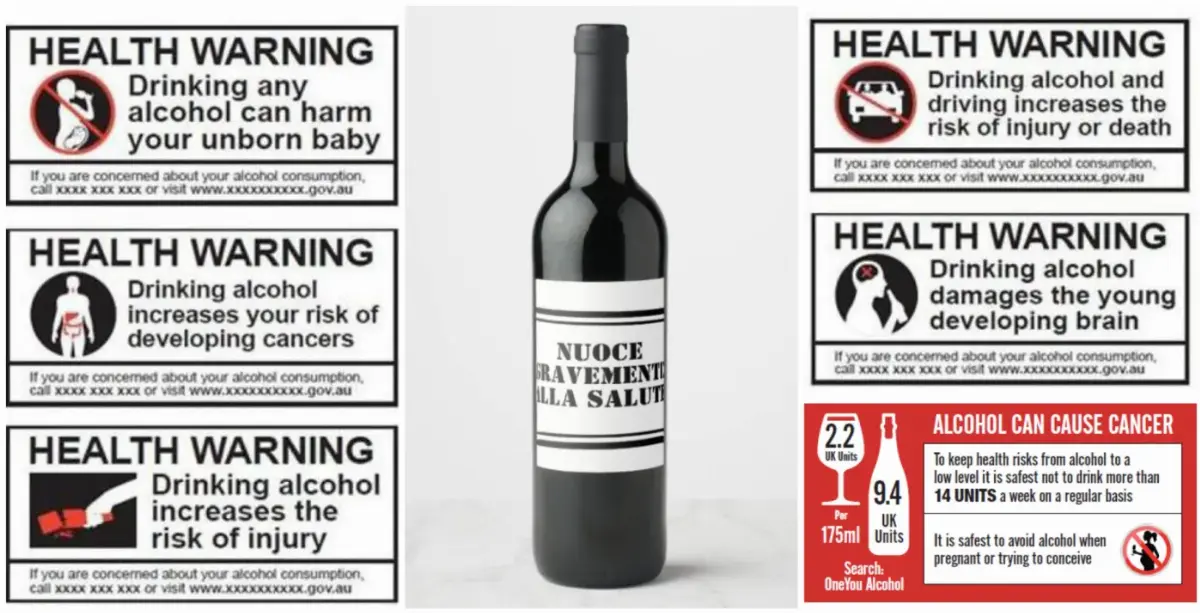
Ireland, anti-alcohol label is law
Government converted health warning labeling regulation

Ireland has its own law on new alcohol labels. The Irish government announced this by making it public today on the executive website www.gov.ie that "Health minister Stephen Donnelly has signed the Public Health (Alcohol) (Labelling) Regulations 2023 and the remaining provisions of Section 12 of the Public Health (Alcohol) Act".
Section 12 and the Regulations are those that "introduce comprehensive health labeling of alcohol products sold in Ireland and provide that similar health information is available to customers of licensed premises".
The Irish alcohol label has drawn criticism from several EU states, including Italy, from WTO member states and alcoholic beverage producers as a barrier to trade, "unjustified and disproportionate". The European Commission, however, has given the green light to the Irish proposal through silent consent, despite criticism from 13 states including Italy. The issue will be on the agenda of a June 21 meeting of the Technical Barriers to Trade Committee.
The law, the government memo points out, "requires that alcohol product labels indicate the calorie content and grams of alcohol in the product. The labels will warn of the risk of alcohol consumption during pregnancy and the risk of liver disease and fatal cancers due to alcohol consumption. The labels will direct consumers to the Hse website, www.askaboutalcohol.ie, for more information.The law provides a three-year period to give companies significant time to prepare for the change. The law will apply as of May 22, 2026".
"I am pleased that we are the first country in the world to take this step and introduce full health labeling of alcohol products: I hope that other countries will follow our example -underlined minister Donnelly-. This law is designed to give all of us consumers a better understanding of the alcohol content and health risks associated with alcohol consumption. With this information, we can make an informed decision about our alcohol consumption. The packages of other food and beverage products already contain health information and, where appropriate, health warnings."
"Everyone has the right to be informed about the risks associated with a product before consuming it -adds Hildegarde Naughton minister of Welfare and National Drug Strategy-. This law is designed to ensure that all alcohol consumers have access to clear and concise information about the risks of alcohol. The medical evidence is clear that cancer risk exists even at lower levels of alcohol consumption".
Outlining the new legislation, the government added some notes on alcohol consumption in Ireland: light to moderate levels, according to the executive, caused nearly 23,000 new cancer cases in 2017, nearly half were female breast cancers. Sixty percent of drinkers, according to the government, drink episodically and heavily each month, while 24% do so on a weekly basis (National Drug and Alcohol Survey results for 2019-2020).
In 2019, according to data from the Global Burden of Disease, 4.8% of all deaths and 5.2% of life years in people with disabilities were attributable to alcohol. The average length of hospital stays for patients with alcohol-related diagnoses has increased from 6 days in 1995 to 10.3 days in 2018: this, according to the Irish government, suggests that the diseases are becoming more complex and take longer to treat.
The Healthy Ireland survey, conducted annually and based on a nationally representative sample of more than 7,000 respondents, shows that a significant number of Irish consumers are unaware of the risk of health damage from alcohol consumption.
Despite all this, European and national wine, beer and spirits producer associations last week submitted official complaints to the EU Commission to open infringement proceedings against Ireland.
EFA News - European Food Agency